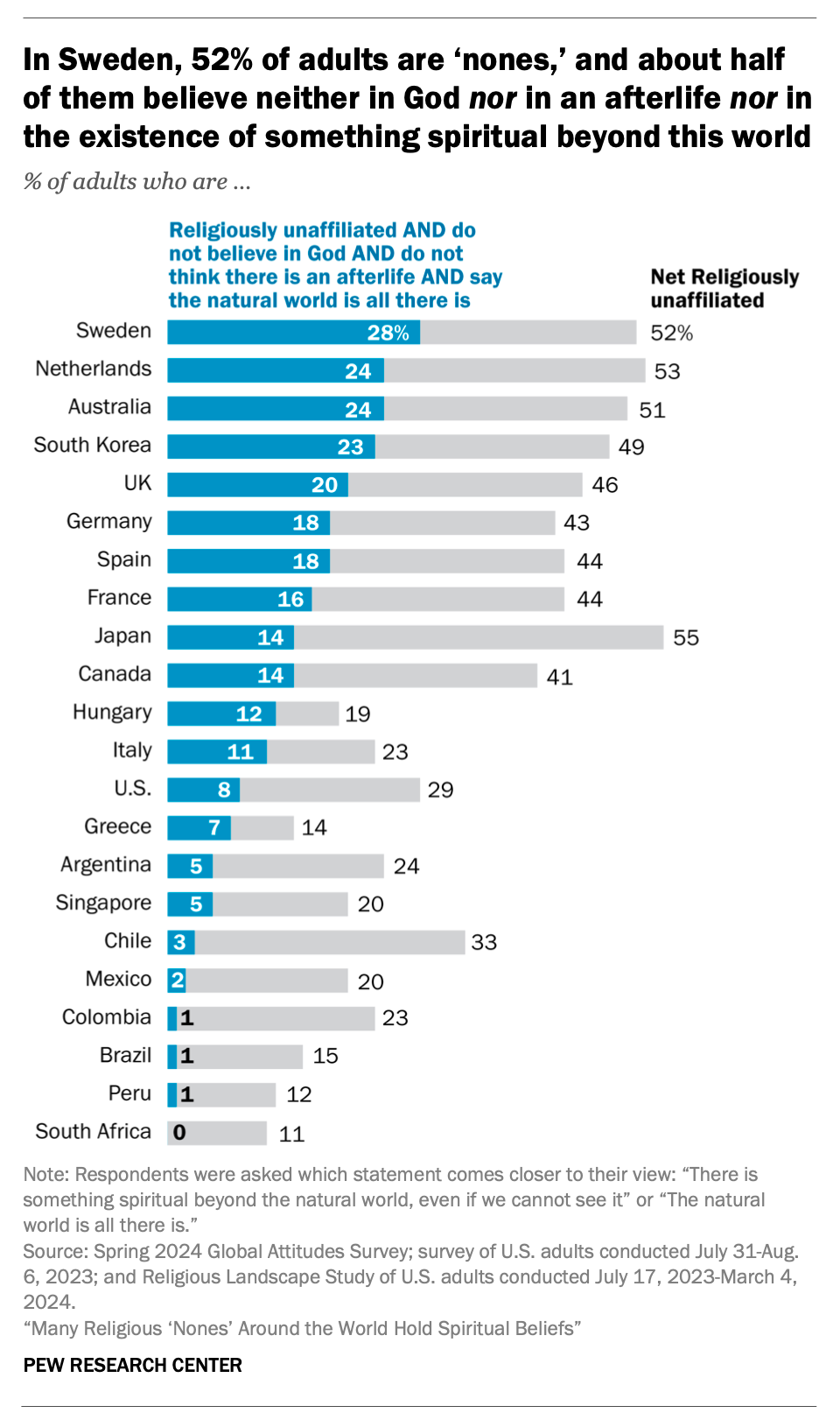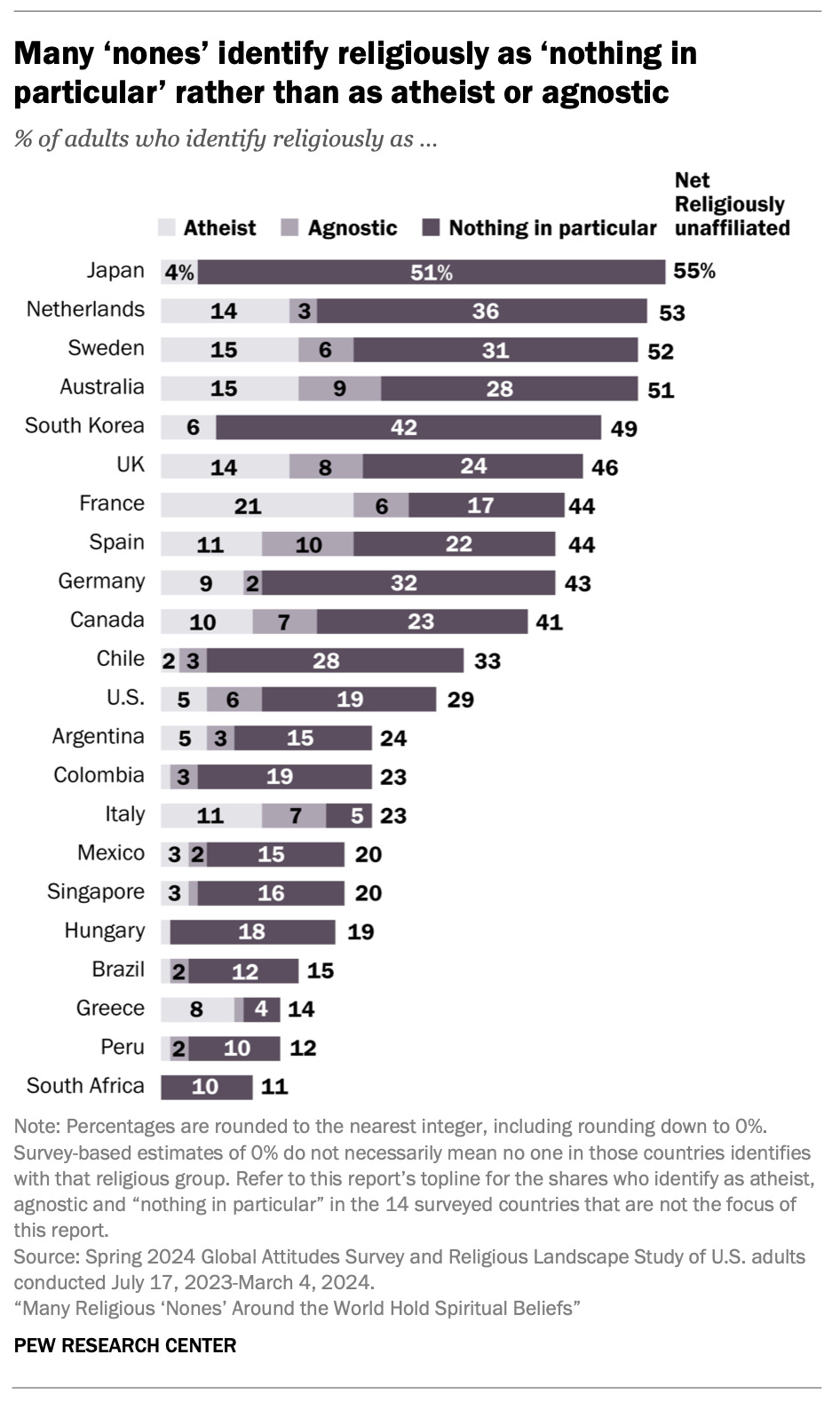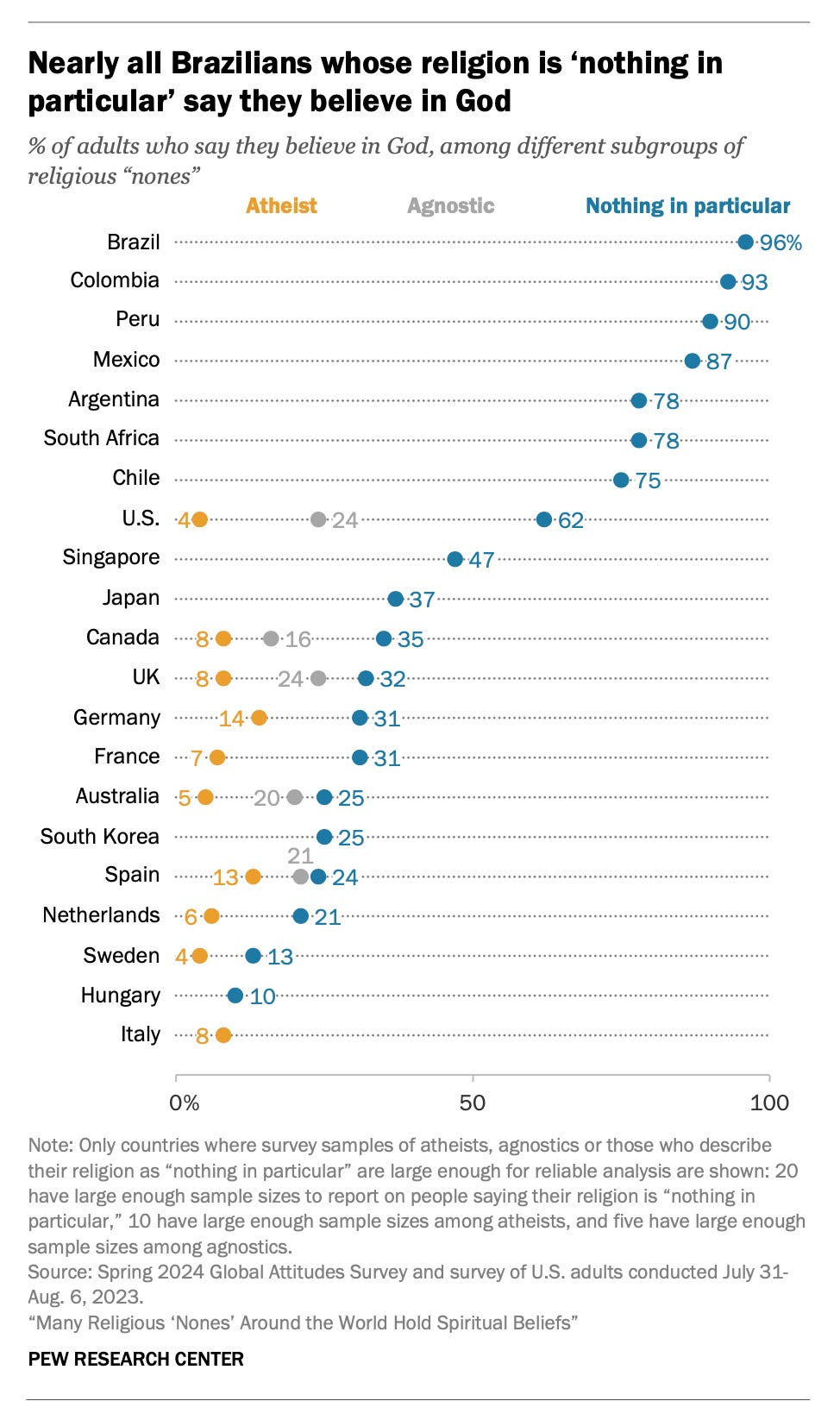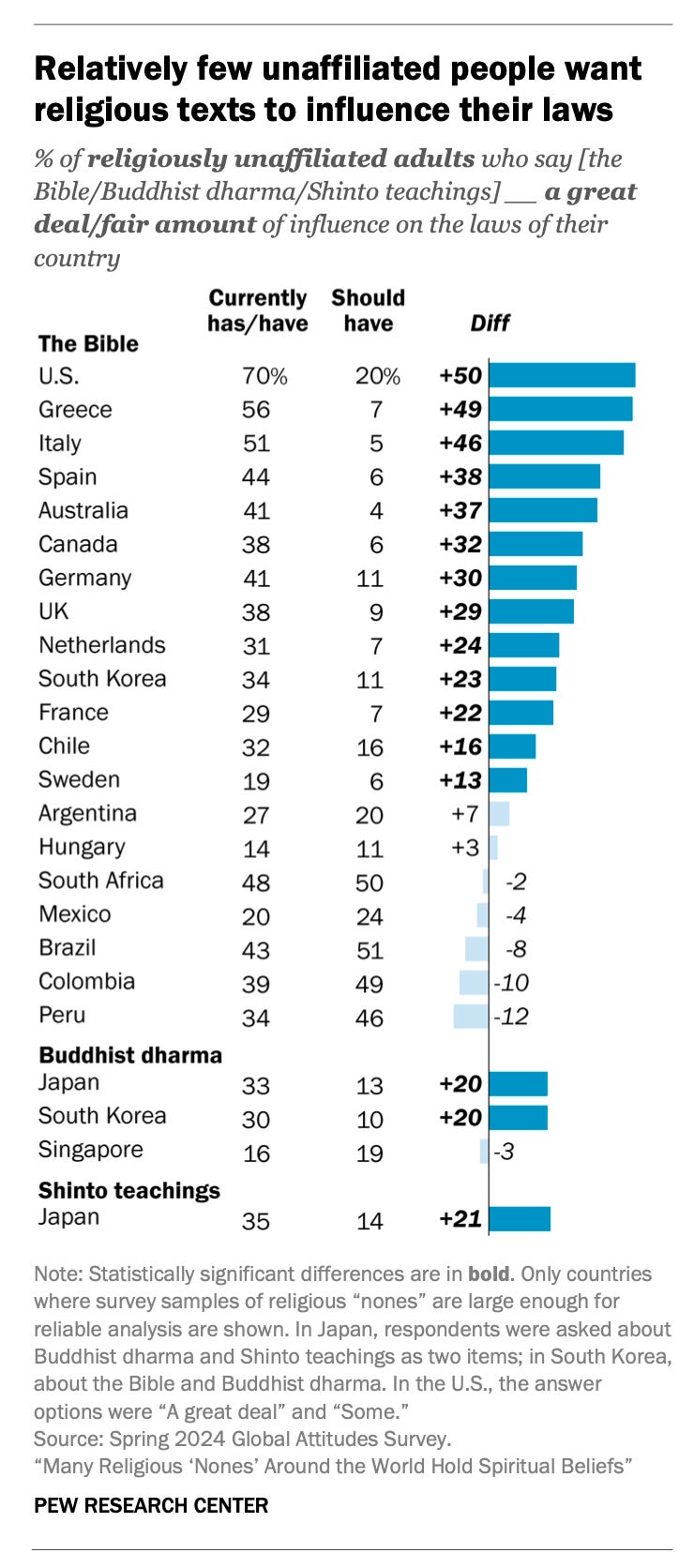America’s "Nones" aren’t as godless as you think
A new report from the Pew Research Center finds that most U.S. Nones still cling to prayer, spirits, and the supernatural
This newsletter is free and goes out to over 22,000 subscribers, but it’s only able to sustain itself due to the support I receive from a small percentage of regular readers. Would you please consider becoming one of those supporters? You can use the button below to subscribe or use my usual Patreon page!
When it came to the 2024 elections, Kamala Harris got the support of 83% of atheists, 79% of agnostics, and 60% of people who believe in “nothing in particular.”
Similarly, 95% of atheists say abortion should be legal in all or most cases, as do 94% of agnostics. But that falls to 80% for those who believe in “nothing in particular.”
When it comes to acceptance of homosexuality, 93% of atheists and 95% of agnostics say it’s perfectly fine, but that number drops to 82% among those with no religious or non-religious affiliation.
This is one of the annoying things about the “Nones.”
Because there aren’t always enough “atheists” or “agnostics” to constitute a separate demographic, researchers often lump them together with people who don’t have a religious label but don’t call themselves explicitly non-religious either. We all get grouped under some catch-all phrase like “Nones” or “Unaffiliated” or “Nothing in particular” even though there are stark differences between us. Those differences can often stay hidden when surveys show 29% of the country have no religious affiliation.
The Pew Research Center just published a fascinating new report about “Nones” around the world. They wanted to see what our beliefs on various issues look like in different countries—and, importantly, what the internal differences are when you actually break out the “Nones” into specific categories. (For the sake of this article, I’ll just use “Nones” to describe the broader group that includes atheists, agnostics, and others who don’t believe in anything in particular.)
Some of the findings may come as a surprise to you. For example, 42% of Nones in the U.S. say there is “definitely” or “probably” life after death. 45% of U.S. Nones believe in God (?!) and 60% think animals can have “spirits or spiritual energies.” (Someone make it make sense.) The survey also found that 55% of U.S. Nones pray while 13% light candles or incense for spiritual/religious reasons.
That raises an interesting question that I’ve yelled in frustration every time I see these kinds of surveys: Who the hell are you people?!
Now we have answers to that.
In the U.S., even though 29% of people have no religious affiliation, only 8% of us are truly secular. That is, only 8% of Americans don’t believe in God, don’t believe in an afterlife, and say the natural world is all there is. To put it another way, only 8% of us in the U.S. are right on those questions.
And that puts us waaaaay down in the pack compared to other countries. In Sweden, where 52% of people are Nones, more than half of them (28% of the country overall) don’t believe in all that supernatural nonsense.
Compared to other countries, America also has an outsized share of people who are “nothing in particular” (19%) as opposed to atheist (5%) or agnostic (6%).
In France, 21% of the country is atheist, and that makes up about half of their Nones. Meanwhile, in Japan, 55% of people are Nones but a mere 4% are atheists.
These results show why an ostensibly non-religious country like Japan still believes in a lot of supernatural silliness while the U.S., despite a non-religious population that was on the rise for decades until very recently, still buys into a lot of spiritual bullshit. Only in Italy and Greece do atheists have the largest plurality among the various kinds of Nones.
Here’s another fascinating result: In Brazil, Colombia, Peru, and Mexico, nearly all of their Nones believe in God. In the U.S., it depends on which subgroup you’re looking at. (Weirdly, 4% of U.S. atheists say they believe in God, which just shows you logical consistency isn’t universal.)
Here’s another difference between the countries: In America, 70% of Nones say the Bible has a lot of influence on the laws of our nation. (It absolutely does. That percentage should be higher.) But 20% of Nones say the Bible should have a lot of influence on our laws. The gap between those two thoughts is the largest among the nations surveyed with similar questions. That makes some sense when you consider how much damage Christian Nationalism is doing to our country—no wonder people want to see far less Christian influence in our politics.
You can see the full survey results here.
While a lot of this isn’t surprising to those of us who have followed these surveys over the years, it still shows how U.S. Nones are not a cohesive bloc of secular thinkers but rather a fragmented coalition, many of whom still cling to spiritual or supernatural ideas.
It’s worth keeping in mind when you see headlines suggesting a surge of secularism. The reality is that only a small fraction of us (8%) are truly non-religious in a consistent, rational sense. That matters since it affects how much influence we can exert in shaping policy, resisting Christian Nationalism, and advocating for science, reason, and human rights. Simply put, the presence of a large “None” population does not automatically mean the U.S. is becoming more secular in practice. For example, it’s harder to convince people “thoughts and prayers” don’t make for good public policy when even 55% of Nones say they pray.
For atheists, this data is both a challenge and a call to action. It shows that the fight for a genuinely secular society requires more than just increasing the number of people who check “other” on a survey. It requires outreach, education, and visible representation that makes atheism understood, respected, and appealing.
While Nones may be generally aligned on issues like reproductive rights, LGBTQ+ acceptance, and church-state separation, there are far too many of us who believe in evidence-free nonsense, which could make a lot of Nones susceptible to irrational thinking in other areas, too.






8%er here. Supernatural nonsense is why we can't have nice things.
Madison, Jefferson, and all of the other Deist founding fathers would be part of the Nones today.